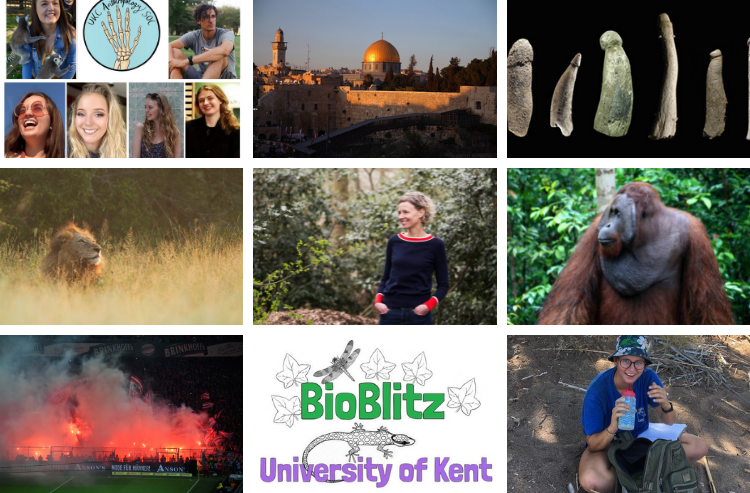Conflict, Football, Wildlife and Sex Toys -there’s something for everyone in our May newsletter.
The Annual Dice Lecture took place…
Professor Erik Meijaard joined the Durrell Institute for Conservation and Ecology (DICE) for their prestigious annual lecture series. See more.
Dissertation topics got interesting…
- ‘The beautiful thing about an Anthropology degree, anything to do will humans is a viable writing topic’. Nerys Bushnell blogged about writing her Stage 3 dissertation on female sex toy preference. Read more.
We hosted a ‘BioBlitz’ on campus!
- A variety of specialist surveys took place with experts on hand to explain how each species’ data is collected, facts about their behaviour/natural habitats and how they are protected. Read more from Jacob Coles.
- Sicily Fiennes who is studying for a Masters in Biodiversity Management shared why she was looking forward to getting her hands dirty. Read here.
- MSc Conservation Biology student, Kieran Richardson wrote about his passion for nature and wildlife ahead of the BioBlitz. Learn more.
Research shed hope on the Israeli Palestinian conflict
- During these dark times in Jerusalem and the wider Israeli Palestinian conflict, this new paper from Dr Jonathan Rock Rokem sheds some hope for a return to a more peaceful yet unequal urban co-existence. Learn more.
The Premier League came to a finish but…
- Does Cocaine Make Football Fans More Aggressive? Find out here.
WAIT!
- On Tuesday 25 May, Professor Shahram Khosravi from the University of Stockholm gave a talk in our Public Anthropology in Times of Crisis research seminar series, ‘Waiting, a state of consciousness’. See more.
The Anthropology Society Need YOU!
- Anthropology enthusiast? The Anthropology Society are recruiting for next year’s committee and you can be a part of it. Find out more.
We’ve been podcasting
- Head of School Professor Tracy Kivell has been recognised along with 14 other grantees to celebrate the European Research Council (ERC)’s milestone of funding 10,000 grantees. Listen here.
- Could today’s zoo animals be descendants of the same lion subspecies that fought in Rome’s Colosseum? Listen here.
And lastly, what can be said about the sustainability of sand?
- Sand usage is integral in the production of nearly all of the world’s buildings, roads, laptops, phone screens and more. Do we need a stronger understanding of its use and extraction? Find out here.
Keep up to date with the latest news from the School of Anthropology and Conservation

